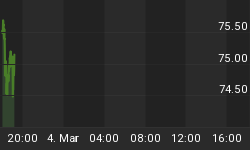Deutsche Bank (DB) is getting desperate, and Wall Street is ditching it—fast.
The most recent quarterly results were dismal, one of its investors has been turned into a paid advisor, and now there is talk about closing down the bank’s equities trading branch over losses of around $750 million last year, according to the Wall Street Journal.
On Wall Street, there’s only a single analyst covering DB that has a “buy” rating. The other 31 one are summoning the bear. In a year, the bank’s shares have lost 42 percent.
It’s trying to restructure, but so far that’s not working, and it’s quite possible that the next step is a government-forced merger with Germany’s other big bank—Commerzbank, both of which are also losing market share and facing a major threat from fintech; particularly Wirecard—the most successful pioneer in the no-cash environment.
DB’s equities arm has been in trouble for a while. In 2018, DB CEO Christian Sewing initiated a streamlining to remove 7,000 jobs from the corporate and investment bank. Three years ago, the equities trading arm had some 30 executives; now, it has about eight in Europe.
The equities trading unit brought in only $428 million in revenue in the last quarter—a result lower than anything its seen in five years or more, according to Bloomberg.
It has helped share prices that DB’s seen a series of scandals, including its offices being raided related to the Panama Papers investigations.
Also, the bank was named in the Bosnia-based Organized Crime and Corruption Reporting Project (OCCRP) report alleging it was involved in $9 billion global money-laundering scheme allegedly set up and run by Russia's largest private investment bank.
Deutsche Bank was hit again when it missed its fourth quarter revenue results with its share price nearly halving in the 12 months to the start of February.
The stock lost around 4 percent last month following the rumors of a potential merger with rival Commerzbank by mid-2019.
And not only did they lost an estimated $750 million in their equities trading arm, but DB also is said to have lost around $1.6 billion on a single bond trade. Back in 2007, just before the financial crisis, the bank bought a $7.8 billion portfolio of municipal bonds and bought default protection on the bonds from Berkshire the following year, paying $140 million in the transaction. Deutsche Bank managers ultimately chose to sell the bonds at a loss and retire its Berkshire insurance, recognizing this massive loss.
Is there any silver lining? Maybe … Related: Chinese Onshore Markets Bracing For $46B Boost
However, as Deutsche Bank is shrinking, or even suspending its equities business, the revenues are up in such divisions across the sector. According to the Coalition, the business intelligence company, the top dozen investment banks made $4.4 billion in their strategic equity divisions last year, which represents a 29-percent increase over 2017.
It’s a pretty thin silver lining, though, when you consider this major threat to traditional banks: fintech.
"Ten years after the financial crisis, the banking industry is experiencing a level of competitive intensity and disruption that’s much greater than what's been seen before," Forbes quoted Julian Skan, Accenture Strategy managing director for banking and capital markets, as saying back in October. "With challenger banks and platform players reducing traditional banks’ competitiveness and the threat of a power shift looming, incumbent players can no longer rest on their laurels."
By Tom Kool for Safehaven.com
















